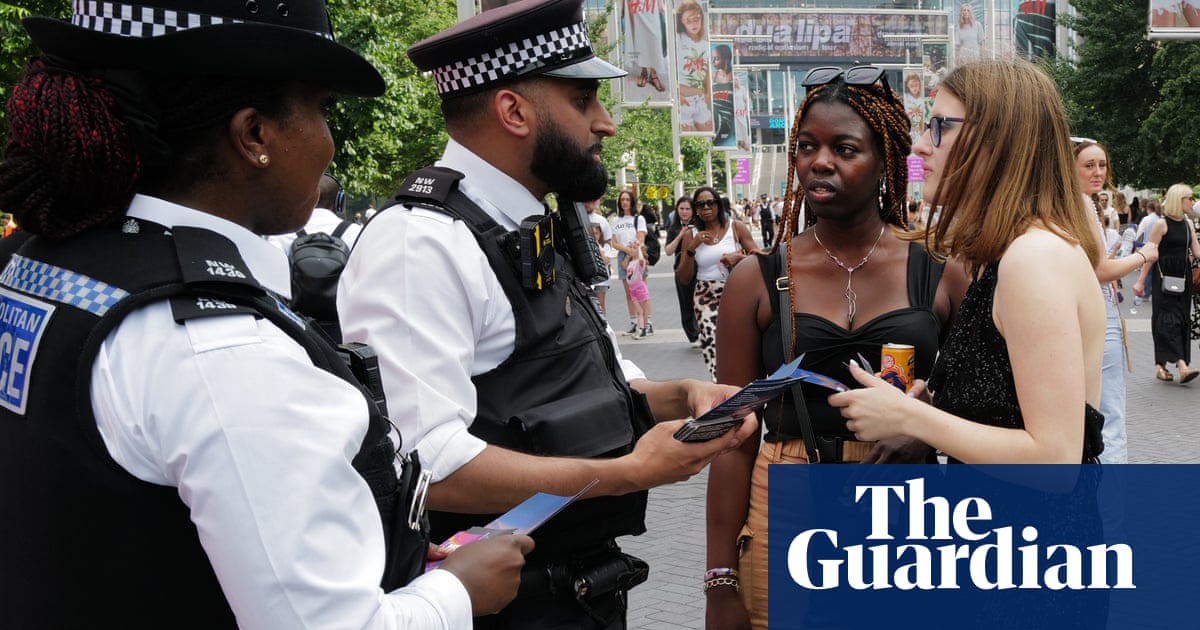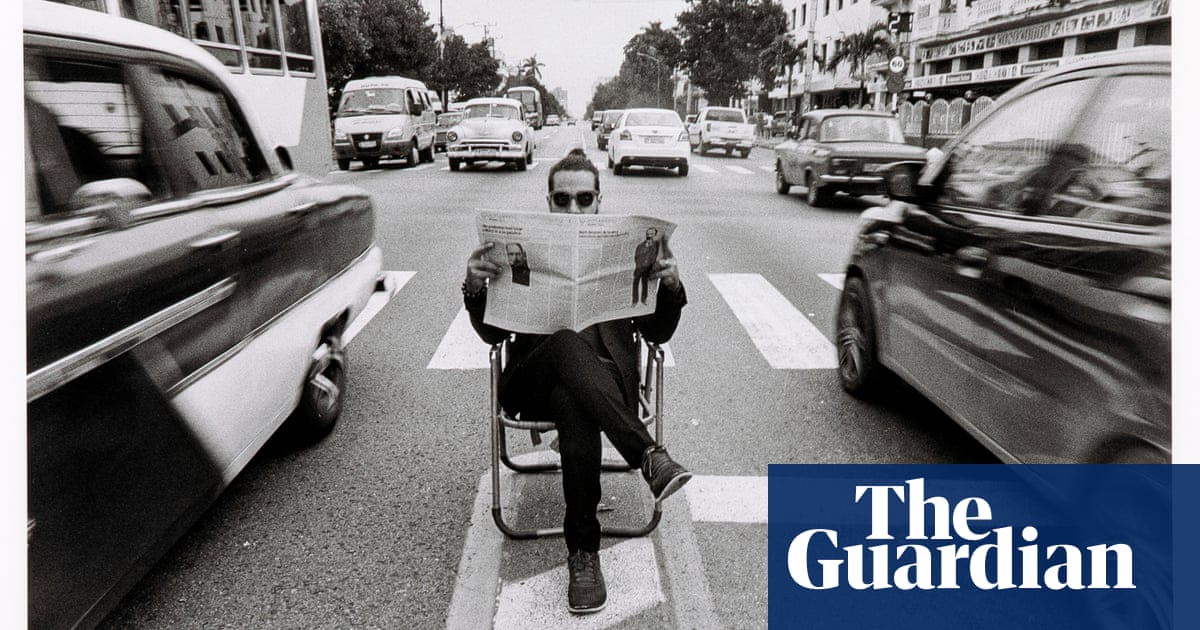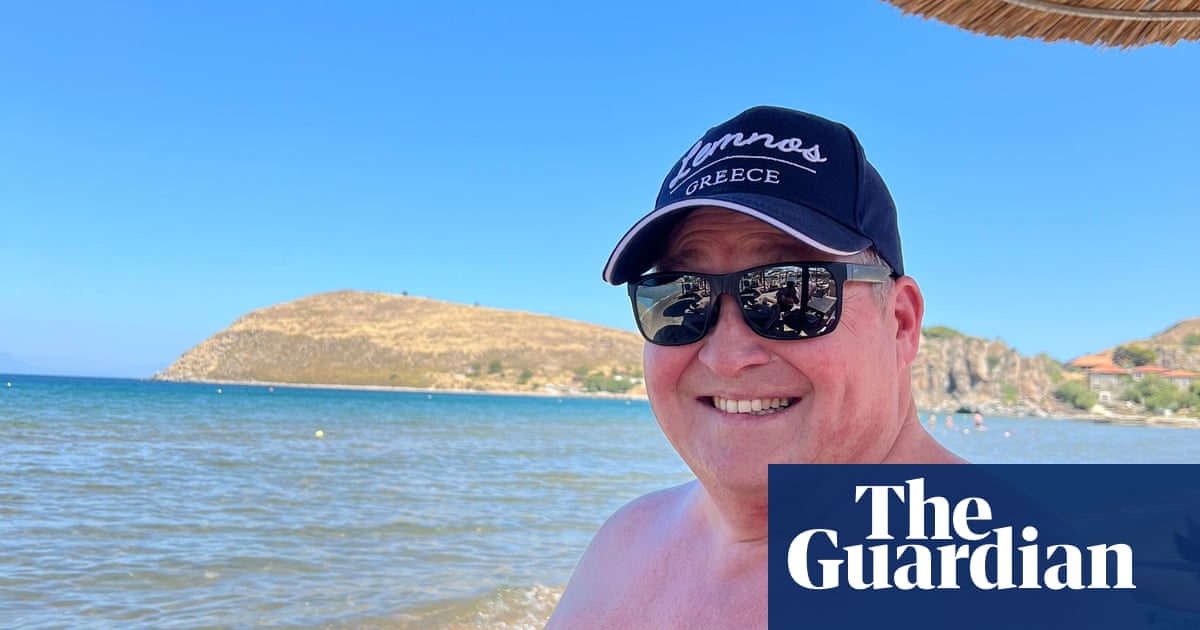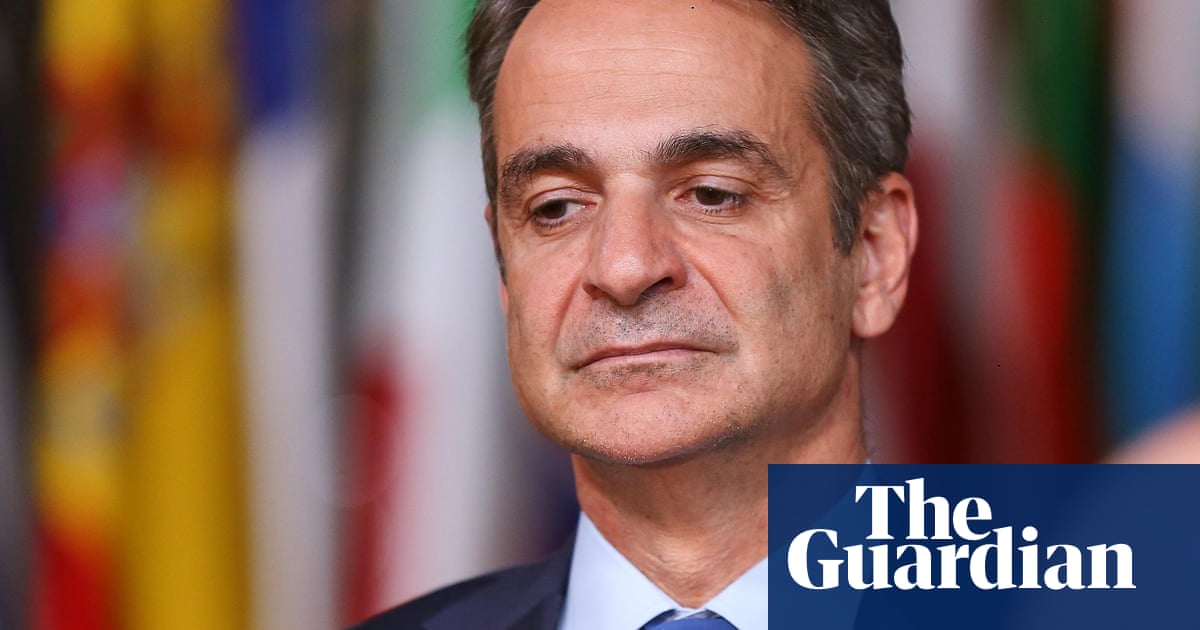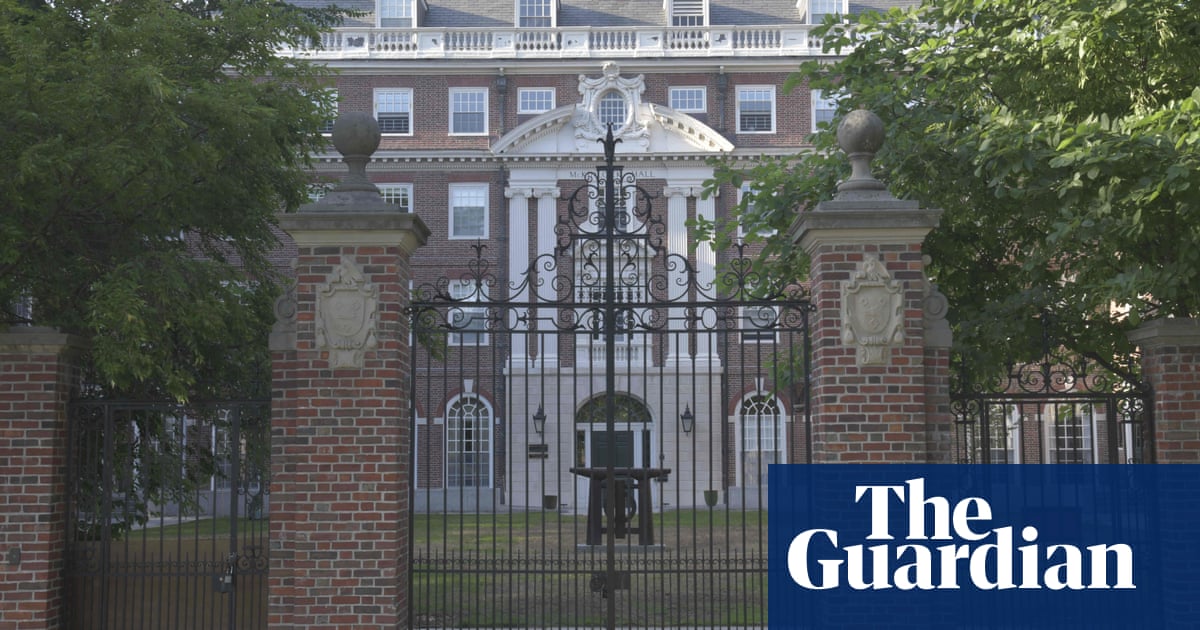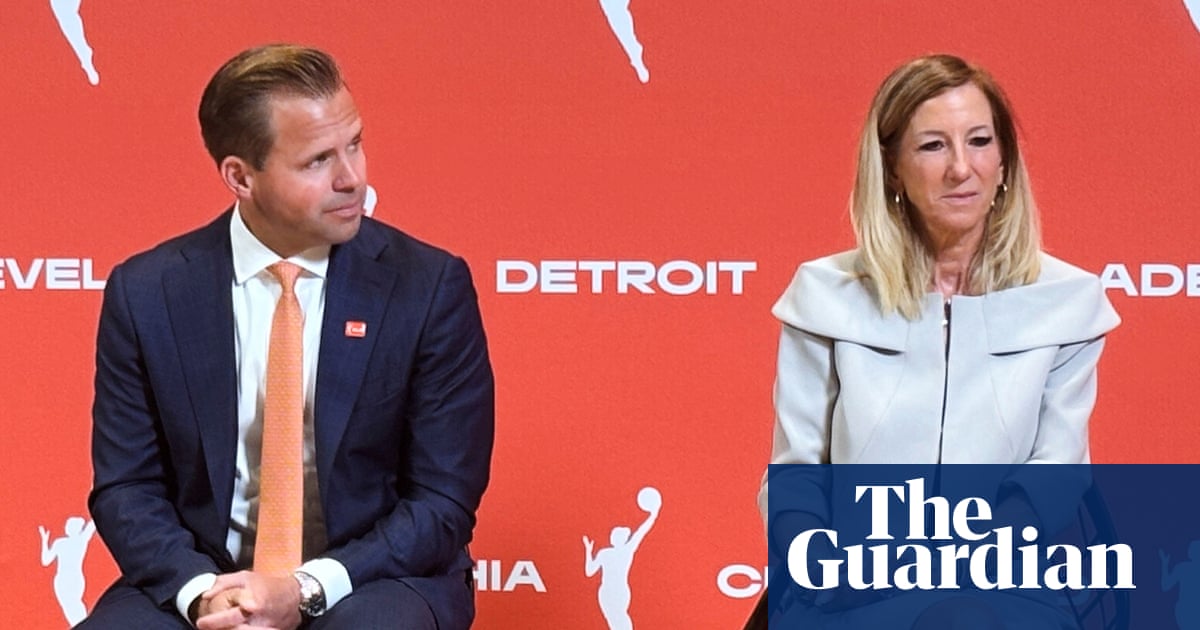Trump says he is not 'offering Iran anything' or speaking to the country since the US 'obliterated their nuclear facilities'
US president Donald Trump has said he is not speaking to Iran and was not offering the country “anything”, as he claimed that America “totally obliterated” Tehran’s nuclear facilities when it struck them earlier this month.
Trump’s comments, posted to Truth Social this morning, followed reports that his administration had discussed possibly helping Iran access as much as $30bn to build a civilian-energy-producing nuclear program.
The reported proposal would mark a major reversal in policy for Trump, who exited Barack Obama’s nuclear deal with Iran in 2018, claiming the sanction relief and unfreezing of assets provided Tehran with “a lifeline of cash”.
Trump wrote:
Tell phony Democrat Senator Chris Coons that I am not offering Iran ANYTHING, unlike Obama, who paid them $Billions under the stupid “road to a Nuclear Weapon JCPOA (which would now be expired!), nor am I even talking to them since we totally OBLITERATED their Nuclear Facilities.
For context: Chris Coons, a senior Democratic member of the Senate foreign relations committee, said last week that it was too early to reach a “conclusive estimate” of how much damage was done by American airstrikes to Iran’s nuclear enrichment programme.
Coons told MSNBC:
It is important that we do not politicise the career professionals in our intelligence community. So whether it is President Trump immediately declaring that the entire programme was obliterated, which to me seems entirely premature.
Or whether it is a characterisation of specific sites and capabilities and how much they were harmed – that is a matter of being more precise.
Key events Show key events only Please turn on JavaScript to use this feature
France, Germany and the UK have condemned “threats” against the head of the UN nuclear watchdog, Rafael Grossi, after Iran rejected its request to visit nuclear facilities bombed by Israel and the US.
Tehran has accused Grossi, head of the International Atomic Energy Agency (IAEA), of “betrayal of his duties” for not condemning the attacks on Iran’s nuclear sites, and Iranian lawmakers this week voted to suspend cooperation with the agency.
In a joint statement, foreign ministers Jean-Noel Barrot, Johann Wadephul and David Lammy said:
France, Germany and the United Kingdom condemn threats against the director general of the IAEA Rafael Grossi and reiterate our full support to the agency.
We call on Iranian authorities to refrain from any steps to cease cooperation with the IAEA.
We urge Iran to immediately resume full cooperation in line with its legally binding obligations, and to take all necessary steps to ensure the safety and security of IAEA personnel.
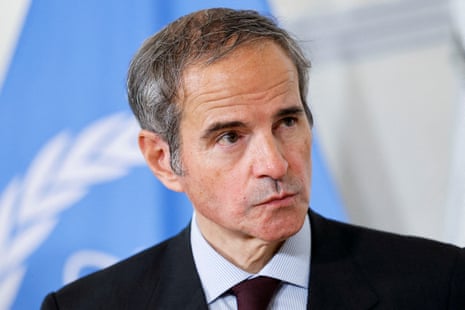
Edward Helmore
Edward Helmore is a reporter for the Guardian who frequently covers US news
Amir-Saeid Iravani, Iran’s ambassador to the United Nations, said on Sunday that the Islamic republic’s nuclear enrichment “will never stop” because it is permitted for “peaceful energy” purposes under the treaty on the non-proliferation of nuclear weapons.
“The enrichment is our right, an inalienable right, and we want to implement this right,” Iravani told CBS News, adding that Iran was ready for negotiations but “unconditional surrender is not negotiation. It is dictating the policy toward us.”
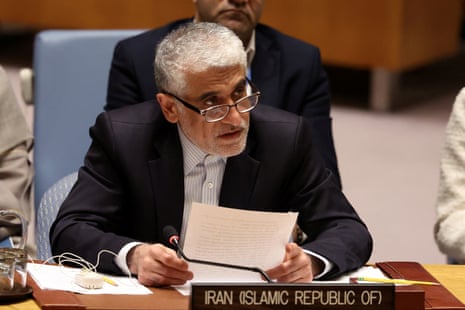
But Iravani said Tehran is “ready for the negotiation, but after this aggression, it is not proper condition for a new round of the negotiation, and there is no request for negotiation and meeting with the president”.
The Iranian UN envoy also denied that there are any threats from his government to the safety of Rafael Grossi, the director general of the International Atomic Energy Agency, or against the agency’s inspectors, who are accused by some Iranian officials of helping Israel justify its attacks.
IAEA inspectors are in Iran but do not have access to Iran’s nuclear facilities.
You can read the full story here:
US must rule out more airstrikes before talks resume, Iranian deputy foreign minister says
The US must rule out any further airstrikes on Iran if it wants to resume negotiations, Tehran’s deputy foreign minister, Majid Takht-Ravanchi, has told BBC News.
Takht-Ravanchi said Iranian officials are hearing from Washington that the US wants to talk. He said no date has been agreed yet.
The deputy foreign minister told the BBC’s chief international correspondent, Lyse Doucet:
Right now we are seeking an answer to this question: are we going to see a repetition of an act of aggression while we are engaging in dialogue. They have not made their position clear yet.
The US and Iran were in negotiations over Iran’s nuclear programme when Israel hit Iranian nuclear sites earlier this month, upending any diplomatic progress that had been made through talks.
The US took the risky move of directly joining Israel’s bombing campaign on 21 June, with Donald Trump subsequently announcing it had “totally oblitareated” three Iranian uranium enrichment sites – Fordow, Natanz and Isfahan.
Iran’s foreign minister, Abbas Araghchi, said diplomacy was not an option after the US attack.
Takht-Ravanchi told BBC News that Iran’s programme, including enriching uranium to 60%, was being carried out “for peaceful purposes”. Once purity levels reach 60%, it is not a lengthy process to proceed to the 90% required for a nuclear weapon.
“To say that you should not have enrichment, you should have zero enrichment and if you do not agree we will bomb you – that is the law of the jungle,” Takht-Ravanchi added.
Al Jazeera has been told by sources in Gaza hospitals that at least 16 Palestinian people have been killed in Israeli attacks since dawn after being targeted in areas including the southern city of Khan Younis and Gaza City and Jabalia in the north.
What is the latest on the efforts to bring about a ceasefire in Gaza?
Ron Dermer, a senior adviser to Israeli prime minister Benjamin Netanyahu, is set to travel to Washington this week for talks on a ceasefire, and plans are being made for Netanyahu to travel there in the coming weeks, a sign there may be movement on a deal, an Israeli official has told the Associated Press.
Egypt, the US and Qatar are continuing efforts to try to negotiate a ceasefire between Hamas and Israel, with mediators hoping that pressure from the Trump administration could help to achieve a deal.
Egypt’s foreign minister has reportedly said Cairo is working on a new proposal that includes a 60-day ceasefire in exchange for the release of some Israeli hostages.
Hamas official Mahmoud Merdawi has accused Netanyahu of stalling progress on a deal, saying the Israeli leader insists on a temporary agreement that would free just 10 of the hostages. About 50 hostages remain, with less than half believed to be alive.
Netanyahu spokesperson Omer Dostri said that “Hamas was the only obstacle to ending the war,” without addressing Merdawi’s claim.
Hamas says it is willing to free all the hostages in exchange for a full withdrawal of Israeli troops and an end to the war. Israel rejects that offer, saying it will agree to end its assault if Hamas surrenders, disarms and goes into exile, something the Palestinian militant group refuses to do.
The 12 day war on Iran – framed by Israel as a preemptive attack for self-defence – was launched by Benjamin Netanyahu and later joined in by the US.
Both countries struck Iranian nuclear facilities but did not destroy the Iranian nuclear programme, likely setting it back by a couple of months, according to an early Pentagon intelligence assessment of the attacks.
In an interview Sunday with Fox News host Maria Bartiromo, Donald Trump repeated his disputed claim that the 21 June airstrikes aimed at certain Iranian facilities successfully crippled Iran’s nuclear program.
As my colleague Marina Dunbar notes in this story, he insisted the attacks destroyed key enriched uranium stockpiles, despite Iranian assertions that the material had been relocated before the strikes.
“They were trying to develop a bomb, and the reason you try to develop a bomb like that is to use it.”@realDonaldTrump doubles down on the U.S. effort to eliminate the threat of Iran obtaining a nuclear weapon — making it crystal clear why America needed to act when it did. pic.twitter.com/6oBg5ckv1u
— Fox News (@FoxNews) June 29, 2025Trump says he is not 'offering Iran anything' or speaking to the country since the US 'obliterated their nuclear facilities'
US president Donald Trump has said he is not speaking to Iran and was not offering the country “anything”, as he claimed that America “totally obliterated” Tehran’s nuclear facilities when it struck them earlier this month.
Trump’s comments, posted to Truth Social this morning, followed reports that his administration had discussed possibly helping Iran access as much as $30bn to build a civilian-energy-producing nuclear program.
The reported proposal would mark a major reversal in policy for Trump, who exited Barack Obama’s nuclear deal with Iran in 2018, claiming the sanction relief and unfreezing of assets provided Tehran with “a lifeline of cash”.
Trump wrote:
Tell phony Democrat Senator Chris Coons that I am not offering Iran ANYTHING, unlike Obama, who paid them $Billions under the stupid “road to a Nuclear Weapon JCPOA (which would now be expired!), nor am I even talking to them since we totally OBLITERATED their Nuclear Facilities.
For context: Chris Coons, a senior Democratic member of the Senate foreign relations committee, said last week that it was too early to reach a “conclusive estimate” of how much damage was done by American airstrikes to Iran’s nuclear enrichment programme.
Coons told MSNBC:
It is important that we do not politicise the career professionals in our intelligence community. So whether it is President Trump immediately declaring that the entire programme was obliterated, which to me seems entirely premature.
Or whether it is a characterisation of specific sites and capabilities and how much they were harmed – that is a matter of being more precise.
Opening summary
Israeli airstrikes and gunfire killed 23 people in Gaza on Sunday, the territory’s civil defence agency said, as tens of thousands of Palestinian people were fleeing eastern parts of Gaza City after Israel warned of a major assault on the north.
Agency spokesperson Mahmud Bassal said at least three children were among those killed in airstrikes at five locations around Gaza and another person died from Israeli fire near an aid distribution centre.
On Gaza City in the north, messages on social media from the Israel Defense Forces warned of “military operations [that] will escalate, intensify and extend westward to the city centre” and directed those living in several crowded neighbourhoods to al-Mawasi, a coastal area much farther south that is already overcrowded and has very limited facilities.
Witnesses described scenes of chaos as entire families tried to pack their remaining belongings, tents and meagre stocks of foods on to donkey carts, bicycles, improvised pickup trucks and cars, my colleague Jason Burke reports.
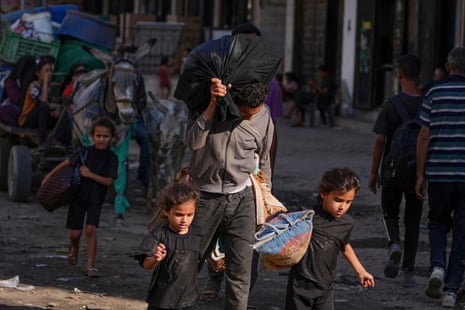
In other developments:
-
Mahmud Bassal said two children were killed in an airstrike on their home in Gaza City’s Zeitun neighbourhood early on Sunday and “the house was completely destroyed”. A member of the family, Abdel Rahman Azzam, 45, told AFP he was at home and “heard a huge explosion at my relative’s house”. “I rushed out in panic and saw the house destroyed and on fire.”
-
Bassal said a drone strike on a tent housing displaced people near the southern city of Khan Younis killed five people including a child. Other casualties included a young man killed “by Israeli fire this morning while waiting for aid” near a humanitarian distribution centre in the southern city of Rafah, the Gaza civil defence spokesperson said.
-
Israeli prime minister, Benjamin Netanyahu, said on Sunday his country’s “victory” over Iran in their 12-day war had created “opportunities”, including for freeing hostages held in Gaza. The main group representing hostages’ families welcomed “the fact that after 20 months, the return of the hostages has finally been designated as the top priority by the prime minister”.
-
Donald Trump reiterated calls for a swift end to Israel’s war on Gaza. “Make the deal in Gaza, get the hostages back,” the US president posted on his Truth Social platform.
-
Indirect talks between Israel and Hamas, brokered by Qatar and Egypt, are continuing but without clear sign of a breakthrough.

 11 hours ago
5
11 hours ago
5




